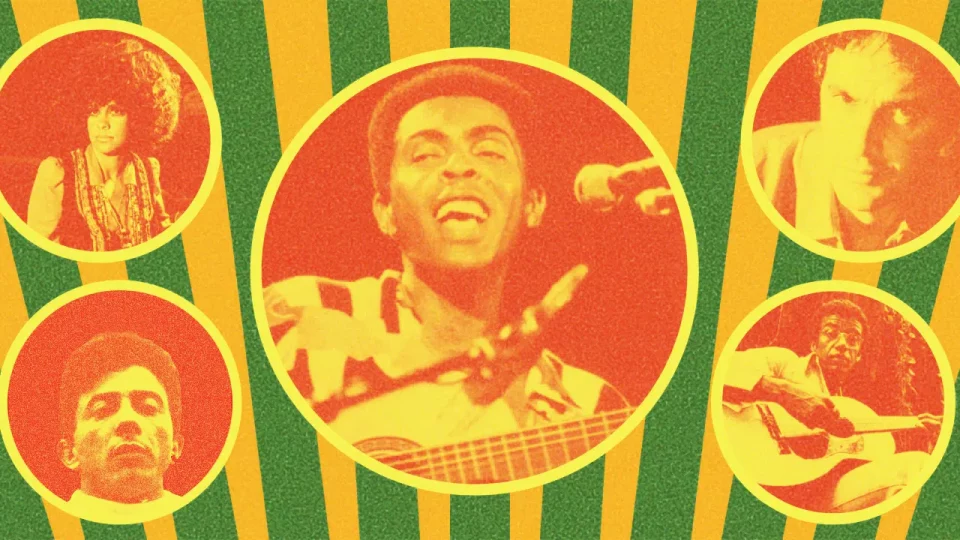Who are the Key Artists in Brazilian Music?
Welcome to Brazill and its infectious and highly distinctive musical heritage. In our previous Blog we examined Brazilian Music in all its vibrant colours. In this blog we’ll explore 15 artists that have shaped and influenced the sound and course of Brazilian music.
Antônio Carlos Jobim,

Also known as Tom Jobim, Carlos Antonio Jobin is hailed as the father of bossa nova. The Bossa sound redefined Brazilian music in the late 1950s. Born in Rio de Janeiro in 1927, Jobim’s compositions, such as “The Girl from Ipanema,” epitomize the cool, laid-back aesthetic of bossa nova. His music went on to captivate audiences (not to mention elevators) worldwide. Jobin’s sophisticated harmonies and poetic lyrics continue to inspire musicians today across many genres.
Notable Song: “Água de Beber”
Gilberto Gil

Gilberto Gil, born in Salvador in 1942, is a musical pioneer known for his eclectic style blending reggae, samba, rock, and Afro-Brazilian rhythms. As a key figure in the Tropicalia movement, Gil’s socially conscious lyrics and innovative compositions have made him a symbol of artistic resistance. His album “Refavela” (1977) stands as a testament to his ability to merge diverse influences into a cohesive and powerful musical statement.
Notable Song: “Refavela“
Sergio Mendes

Sergio Mendes, born in Niterói in 1941, is a Brazilian pianist, composer, and arranger. His fusion of bossa nova with jazz and pop has captivated audiences for decades. With his band, Brasil ’66, Mendes helped to introduce Brazilian music to a global audience, earning international acclaim and commercial success. His album “Herb Alpert Presents Sergio Mendes & Brasil ’66” (1966) features the iconic hit “Mas Que Nada.” This song has gone on to become one of the most recognizable songs in Brazilian music history. Mendes is still active today. Back In 2013, he collaborated with The Black Eyed Peas. Together they revisited Mendes’s catalogue bringing several of his classic recordings bang up to date.
Notable Song: “Mas Que Nada“
Elis Regina
/i.s3.glbimg.com/v1/AUTH_51f0194726ca4cae994c33379977582d/internal_photos/bs/2023/P/q/2nu54WRESy6owY3EQqCw/2022-01-18-17032015122049elis-pedrom-c.jpeg)
Elis Regina, born in Porto Alegre in 1945, was revered as one of Brazil’s greatest vocalists. Regina captivated audiences with her interpretations of bossa nova, MPB (Música Popular Brasileira), and jazz standards. Known for her powerful and expressive vocal delivery, Regina’s performances also display an emotional depth. Her iconic album “Elis & Tom” (1974), recorded with Tom Jobim, remains a timeless classic.showcasing Regina’s extraordinary vocal prowess and musical sensitivity.
Notable Song: “Águas de Março”
João Gilberto
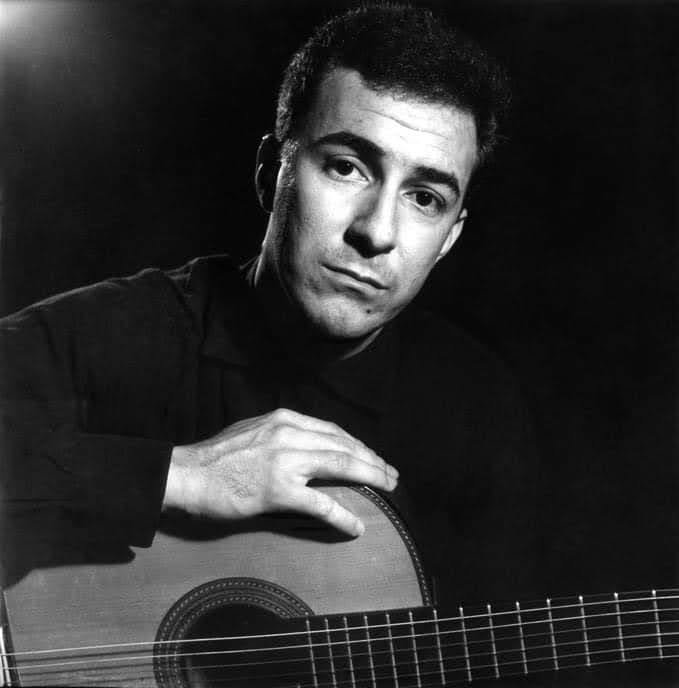
Along with Tom Jobin, João Gilberto was a pioneering figure in the development of Bossa Nova. He played an instrumental role in the shaping of this pivotal genre. His distinctive guitar playing and whispery vocals helped define the intimate, understated style of bossa nova. Gilberto’s seminal album “Chega de Saudade” (1959) marked the beginning of a musical revolution, setting the stage for the global spread of Brazilian music.
Notable Song: “Desafinado“
Astrud Gilberto
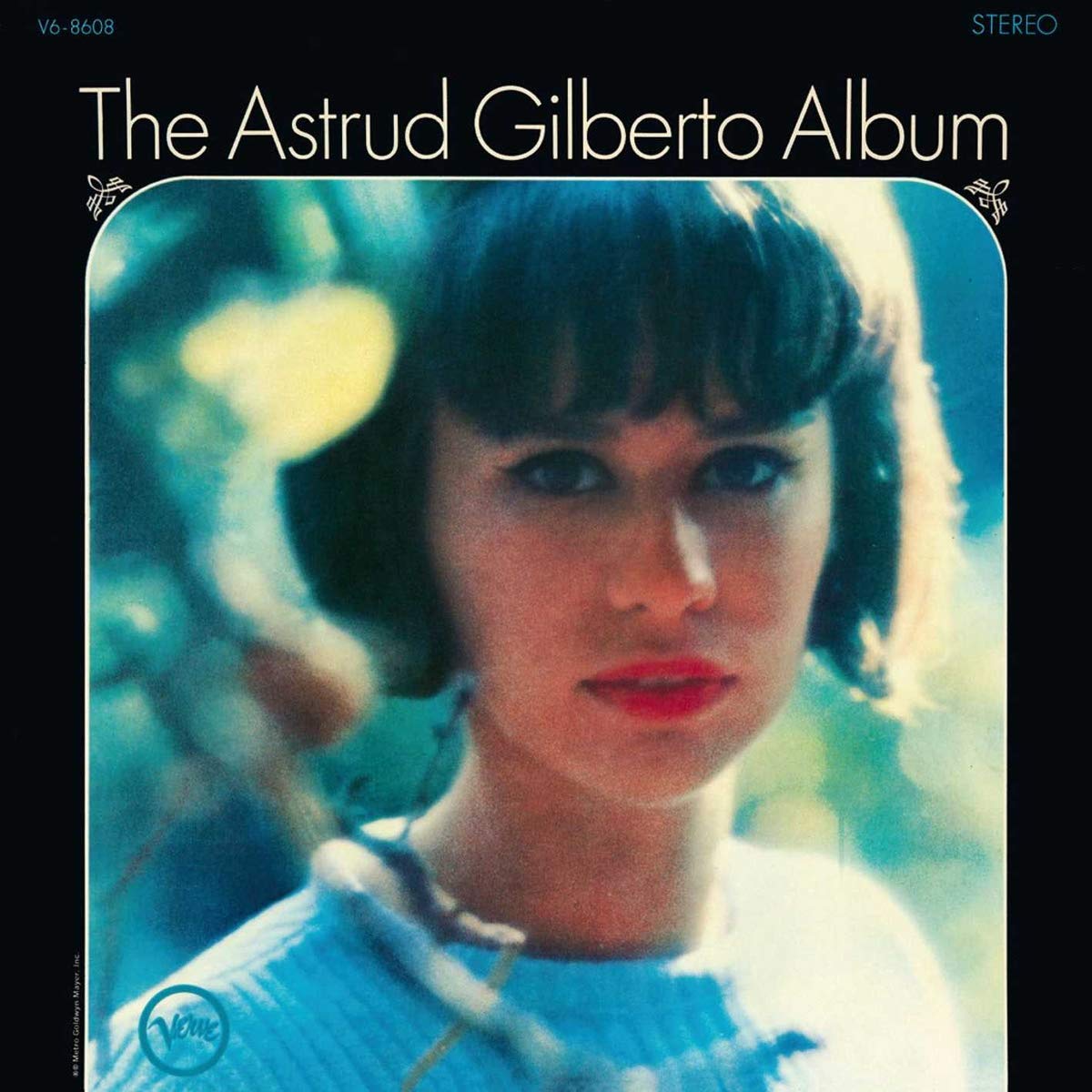
Astrud Gilberto, born in Salvador in 1940, was a Brazilian singer best known for her captivating vocals on the iconic song “The Girl from Ipanema.” This song catapulted Astrud Gilberto onto the world stage. It is often ranked just behind “Yesterday” as the most covered song in modern times. Gilberto’s collaboration with saxophonist Stan Getz on the album “Getz/Gilberto” (1964) solidified her place in music history. This album earned multiple Grammy Awards and became one of the best-selling jazz albums of all time.
Notable Song: “The Girl from Ipanema“
Chico Buarque
Chico Buarque, born in Rio de Janeiro in 1944, is a prolific singer-songwriter and playwright. His music has become synonymous with Brazilian popular culture. Renowned for his poetic lyrics and melodic craftsmanship, Buarque’s songs often reflect on love, politics, and the human condition. His lyrics are famed for offering profound insight and sensitivity. His album “Construção” (1971) is considered a masterpiece of Brazilian music.
Notable Song: “Construção“
Anitta

Anitta was born Larissa de Macedo Machado in Rio de Janeiro in 1993. She has risen to prominence as one of Brazil’s most successful contemporary pop stars. Known for her catchy melodies, energetic performances, and savvy social media presence, Anitta has collaborated with various international artists and earned millions of fans worldwide. Her album “Bang” (2015) showcases her dynamic blend of pop, funk, and Brazilian rhythms, solidifying her status as a powerhouse in the music industry.
Notable Song: “Bang”
Roberto Carlos

Roberto Carlos, born in Cachoeiro de Itapemirim in 1941, is a Brazilian singer-songwriter. He is considered one of the most iconic figures in Latin American music history. Known as the “King of Latin Music,” Carlos has enjoyed a prolific career spanning over six decades. With his smooth voice and heartfelt ballads, Carlos has touched the hearts of millions around the world, becoming a symbol of romance and nostalgia.
Notable Song: “Namoradinha de um Amigo Meu“
Caetano Veloso
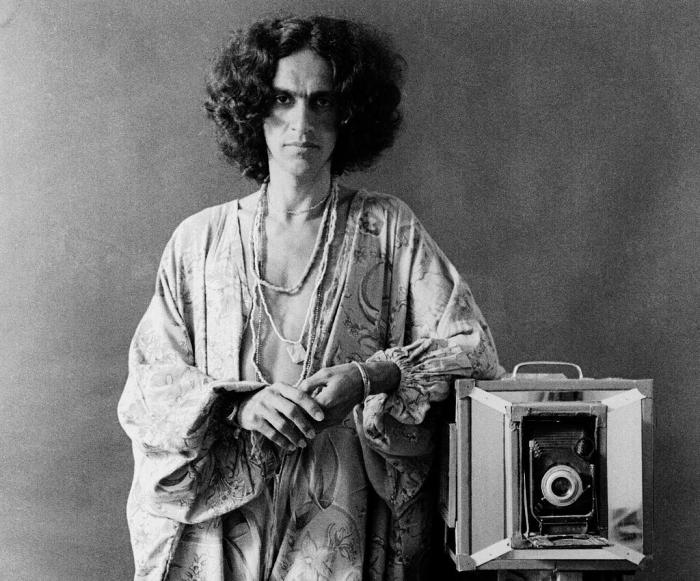
Caetano Veloso, born in 1942 in Bahia, is a pivotal figure in Brazil’s Tropicalia movement of the 1960s. His experimental approach to music blends traditional Brazilian styles with rock, folk, and psychedelic influences. Veloso featured on the landmark 1968 collaborative LP Tropicália: ou Panis et Circencis alongside Gilberto Gil, Os Mutantes, Tom Zé and Gal Costa. Veloso’s eclectic compositions have earned him international acclaim, solidifying his status as one of Brazil’s most innovative musicians.
Notable Song: “Tropicália“
Milton Nascimento
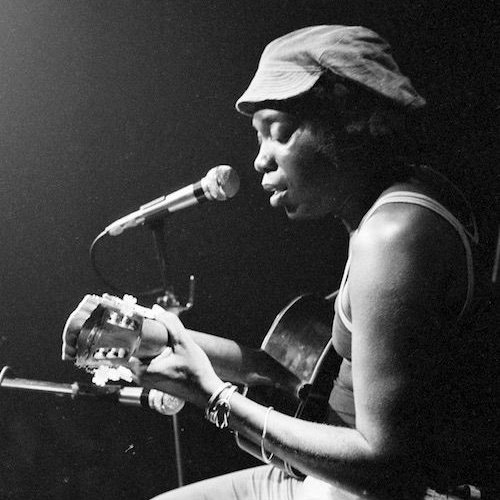
Milton Nascimento was born in Minas Gerais in 1942. He is celebrated for his ethereal voice and is regarded as one of Brazils top guitarists. Nascimento‘s eclectic tendancies blend elements of folk, jazz, and rock. Nascimento huge body of work showcases many styles from acoustic folk to funk and disco. His album “Clube da Esquina” (1972), recorded with fellow musician Lô Borges, is a seminal work in Brazilian music.
Notable Song: “Tudo que Você Podia Ser“
Airto
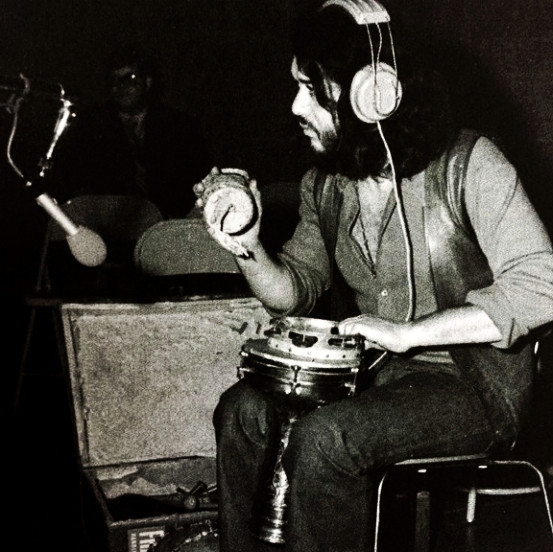
Airto Moreira, born in Itaiopolis, Brazil, in 1941, is a renowned percussionist and drummer. His innovative style has left an indelible mark on Brazilian music and in particular Samba. A master of rhythm and improvisation, Airto’s eclectic approach to percussion incorporates elements of Brazilian, jazz, and world music. His collaborations with artists like Miles Davis, Chick Corea, and Weather Report have helped shape the landscape of contemporary jazz and fusion. His song Celebration Suite was famously sampled by Belini in their 1997 dance anthem Samba de Janeiro.
Notable Song: “Tombo in 7/4“
Azymuth
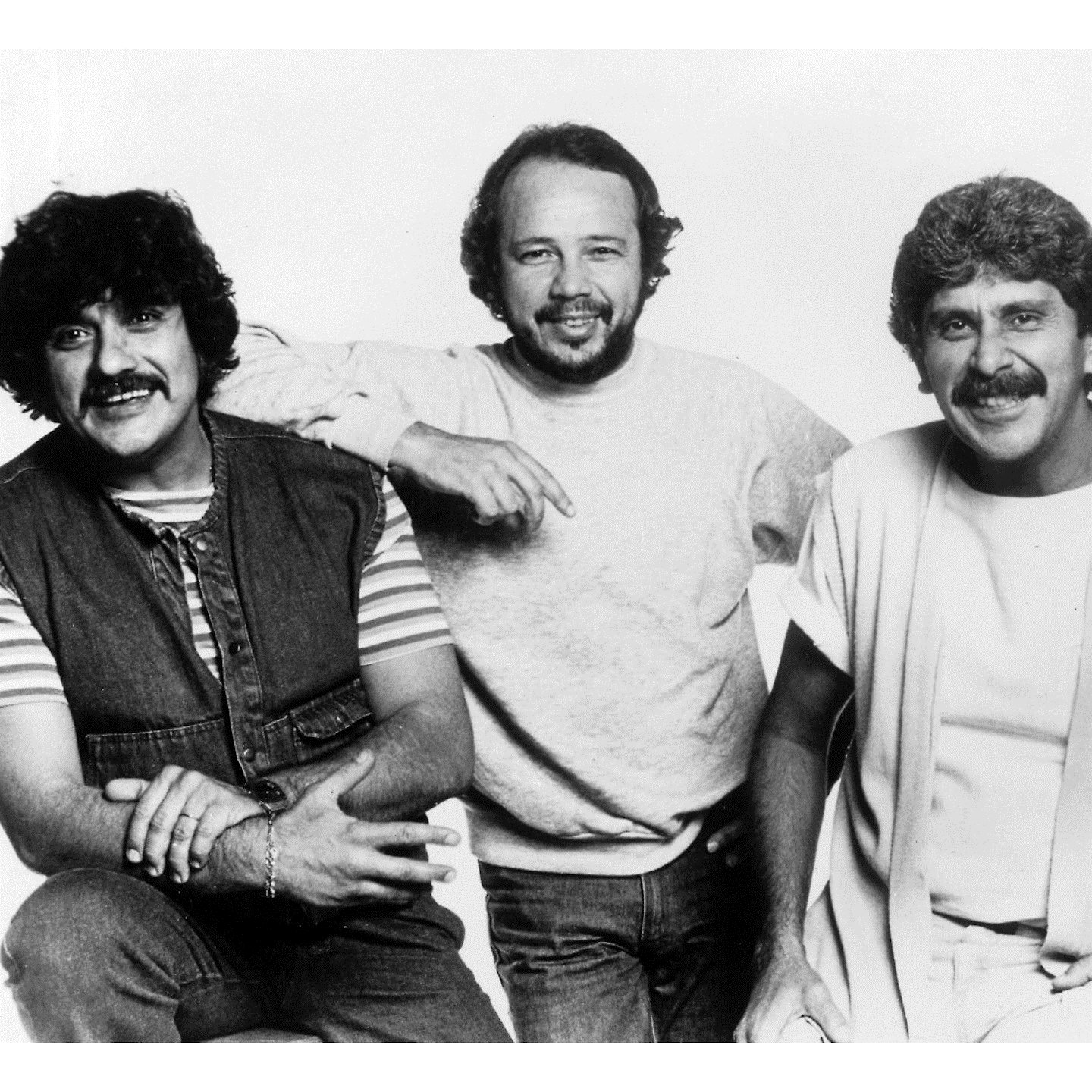
Azymuth, formed in Rio de Janeiro in 1973, and are a pioneering Brazilian jazz-funk trio. They are known for their innovative fusion of samba rhythms, jazz harmonies, and electronic elements. Consisting of keyboardist José Roberto Bertrami, drummer Ivan Conti, and bassist Alex Malheiros, Azymuth’s music reflects the vibrant energy and cultural diversity of Brazil’s urban landscape. Their album “Light as a Feather” (1979) is considered a classic of Brazilian jazz-funk. It features the infectious groove of “Jazz Carnival” which became a worldwide dancefloor smash.
Notable Song: “Jazz Carnival”
MC Guimê

MC Guimê, born Guilherme Aparecido Dantas in São Paulo in 1993, is a prominent figure in Brazil’s Baili Funk movement. Rising from the streets of São Paulo, Guimê’s music reflects the realities and aspirations of Brazil’s urban youth. His music often celebrates aspirational notions of material wealth and success. His album “Sou Filho da Lua” (2013) catapulted him to fame. It featured hits like “Plaque de 100,” showcasing his unique blend of funk, hip-hop, and electronic music.
Notable Song: “Plaque de 100“
Gal Costa

Gal Costa was born in Salvador in 1945. She emerged as another prominent figure in the Tropicalia movement, alongside artists like Caetano Veloso and Gilberto Gil. With her distinctive voice and fearless experimentation, Costa pushed the boundaries of Brazilian music, incorporating elements of rock, and psychedelia. Her self-titled album “Gal Costa” (1969) is a testament to her versatility and innovation, showcasing her ability to navigate diverse musical landscapes with ease.
Notable Song: “Divino Maravilhoso“
Remember – RouteNote Create subscriptions start from as little as $2.99. You also get 10 FREE credits to spend on samples along with access to our FREE sample pack bundle when you sign-up
